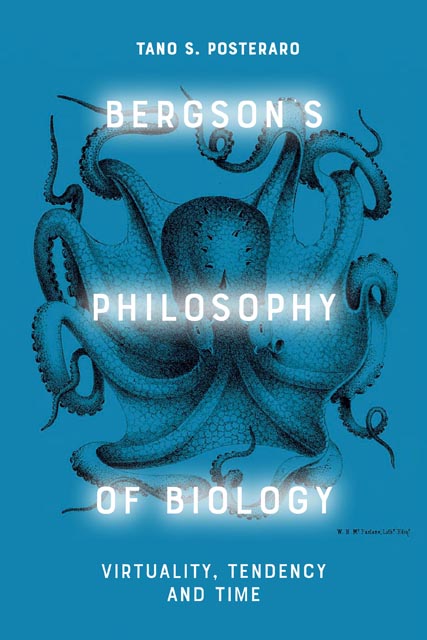Book contents
- Frontmatter
- Contents
- Acknowledgements
- Abbreviations
- Introduction: Between Philosophy and Biology
- 1 The Actual: Mechanism, Finalism, Modality
- 2 The Virtual: Instantiation, Implication, Dynamics
- 3 A Discourse on Tendency
- 4 Individuality and Organisation
- 5 Finalism Inverted
- 6 Canalisation and Convergence
- Concluding Remarks and Future Directions
- Notes
- Bibliography
- Index
Concluding Remarks and Future Directions
Published online by Cambridge University Press: 25 October 2023
- Frontmatter
- Contents
- Acknowledgements
- Abbreviations
- Introduction: Between Philosophy and Biology
- 1 The Actual: Mechanism, Finalism, Modality
- 2 The Virtual: Instantiation, Implication, Dynamics
- 3 A Discourse on Tendency
- 4 Individuality and Organisation
- 5 Finalism Inverted
- 6 Canalisation and Convergence
- Concluding Remarks and Future Directions
- Notes
- Bibliography
- Index
Summary
There are a few general ideas that have informed the shape of this book. The first is that Bergson's philosophy can be reconstructed as a work of metaphysics in something like a unified, systematic fashion. Deleuze may have popularised this possibility, employing Bergson as an ally against the idea that metaphysics had come to an end and had to be overcome as a result. In an interview, Deleuze identified himself with a metaphysical approach to Bergson's philosophy. ‘Bergson says that modern science hasn't found its metaphysics, the metaphysics it would need. It is this metaphysics that interests me’ (qtd. in Villani 1999: 130). It is this metaphysics that interests me too. The idea of articulating a metaphysics adequate to current research has oriented my understanding of Bergson's project both in its own right and in its ongoing relevance for contemporary thought.
The second idea that informed the book is that Bergson's metaphysics receives its fullest extension and deepest instantiation in a philosophy of evolution, which that metaphysics underwrites and by which it is regulated. I work this idea out across each chapter, but it is clearest in the last half of the book, especially in the account of the élan vital as a psychological image for a metaphysical conception of tendency. I think that Bergson's philosophical output should be read outward from Creative Evolution, such that Time and Free Will, Laughter, and Matter and Memory represent incursions into a particular high-dimensional recapitulation of a more basic logic of tendency, multiplicity, and time operative first on an evolutionary register. The Two Sources of Morality and Religion represents the regulative conversion of a movement of speciation into a programme for revolutionary sociocultural and technological advance through the medium of individuals and the creative emotions that they are capable of channelling. Bergson's mystic, on this account, would stand towards the species the way the evolutionary movement stands towards its artificial stopping points: as a tensional thrust onward, fracturing consolidated forms onto the open future of creative experimentation. Bergson's infamous and infamously difficult theory of intuition – though I have left it to one side in this book – might be reconceived accordingly as well. I will say a few words about that below.
- Type
- Chapter
- Information
- Bergson's Philosophy of BiologyVirtuality, Tendency and Time, pp. 253 - 258Publisher: Edinburgh University PressPrint publication year: 2022



